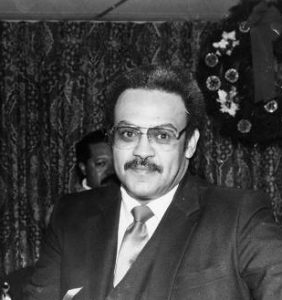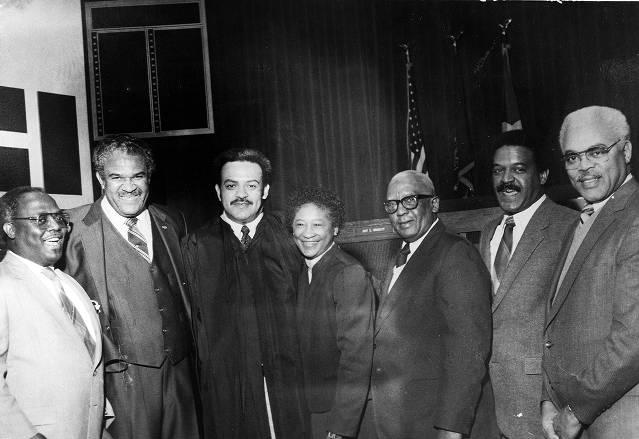
Photo info ...
(May 11, 1935-Jan. 12, 2022). Born in Clarksville, Tennessee, Webster Brewer moved to Indianapolis with his parents, Margie Brodie Brewer and Marvin Brewer, when he was young. He and his family lived on the south side of the city, where they were active members of St. James Baptist Church. Brewer attended Indianapolis Public School No. 19, which was a segregated elementary school. His class was one of the first to integrate . He graduated in 1953.
Brewer then attended Indiana University (IU) in Bloomington, where he belonged to Kappa Alpha Psi fraternity. While living in Bloomington, he met and married Patricia Freeman. The couple had three children.
After graduating with a B.S. in education from IU in 1957, Brewer enrolled in the Indianapolis division of the Indiana University School of Law. During his time as a law student, he saw the criminal justice system from the inside, serving as a county juvenile probation officer and as a parole officer in the federal prison system. With a healthy sense of humor, Brewer later claimed to be the only Indiana judge with time behind bars.

Brewer was an attorney in private practice before becoming a Marion County Superior Court judge. Serving on the Superior Court from 1975 until 1997, he presided first on the civil side, then the criminal division. Although a Democrat, Brewer joined with local and state Republicans like State Senator Les Duvall and Secretary of State Ed Simcox in a statewide push to provide judges with an alternative to sentencing nonviolent offenders to state prison. Brewer added practical experience to this effort to reserve prison cells for the worst criminal offenders. Drawing from his work as a probation officer, Brewer pioneered what came to be known as community corrections, starting a community work service program to substitute for prison sentences in the late 1970s. By establishing these practices, he was the key local judge who practiced what the politicians recommended.
Brewer believed that the state could never build a prison cell for every offender. He guided county and state efforts to find something in between state prison or a slap on the wrist. “I don’t think probation is enough,” he said. “It has the appearance of leniency. We need something more than that.” To meet this objective, the Indiana General Assembly passed the Community Corrections Act in 1979, which allows counties to establish a variety of supervised, community-based programs as alternatives to incarceration.
From the bench, Brewer served as a mentor to younger lawyers, including Tanya Walton Pratt, who became the chief judge for the U.S. District Court for the Southern District of Indiana on June 15, 2010. He offered Pratt the chance to be a pro tem judge, and soon after that, he recommended she serve as a public defender, to see all sides of the criminal justice system. She later identified these opportunities as key steps for her subsequent service as a judge. Brewer also mentored another young lawyer, Carr L. Darden, who served on the Indiana Court of Appeals from 1994 to 2012.
Brewer was a longtime member of , joining upon his return to Indianapolis from IU in the late-1950s. He was member of the National Bar Association, , Indiana State Bar Association, and the Indiana Judges Association. He also served as chair of the Judicial Council of the National Bar Association, to provide continuing legal education for judges.
FURTHER READING
- Pratt, Chief Judge Tanya Walton. “Pratt: Remembering Judge Webster Brewer.” The Indiana Lawyer, February 2, 2022. https://www.theindianalawyer.com/articles/pratt-remembering-judge-webster-brewer.
CITE THIS ENTRY
APA:
Pulliam, R. (2024). Webster Brewer. Encyclopedia of Indianapolis. Retrieved Feb 17, 2026, from https://indyencyclopedia.org/webster-brewer/.
MLA:
Pulliam, Russell. “Webster Brewer.” Encyclopedia of Indianapolis, 2024, https://indyencyclopedia.org/webster-brewer/. Accessed 17 Feb 2026.
Chicago:
Pulliam, Russell. “Webster Brewer.” Encyclopedia of Indianapolis, 2024. Accessed Feb 17, 2026. https://indyencyclopedia.org/webster-brewer/.

Help improve this entry
Contribute information, offer corrections, suggest images.
You can also recommend new entries related to this topic.